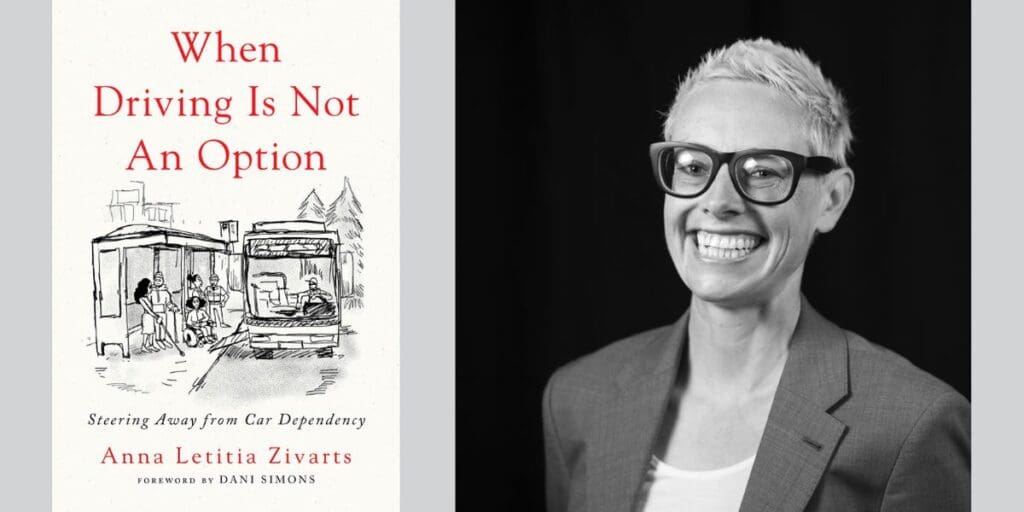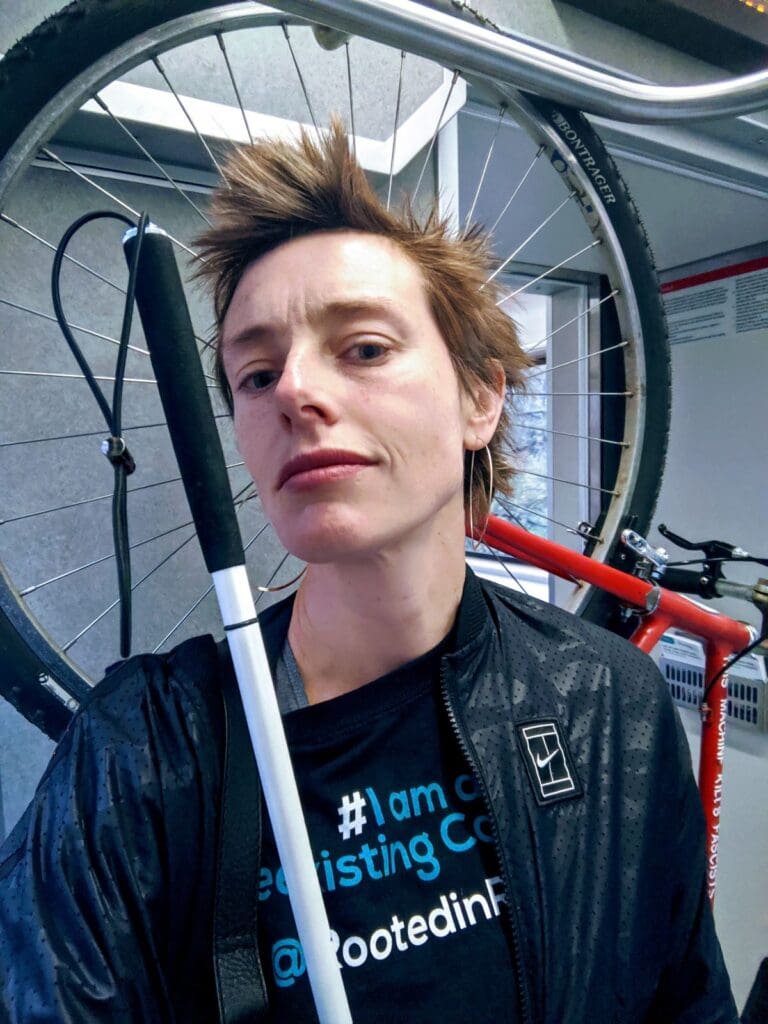This article was first posted on The Urbanist, and is reposted here with permission.

By Anna Zivarts
Anna Zivarts published When Driving Isn’t an Option: Steering Away from Car Dependency with Island Press in May 2024. The book outlines her experience as a low-vision nondriver and shines a light on the frustrating, dangerous, and sometimes deadly situations involuntary nondrivers face every day. This is a letter she wrote in response to her mother’s reaction to the book.
Mom,
I’m worried your response to this book has been to dust off your bike and start to bike everywhere in your exurban community. I know your whole identity is wrapped up in being tough. That you biked across the country twice when you were in your twenties. That you climbed mountains with gargantuan loads teaching wayward kids how to survive in the wild. That you were in labor with me for 36 hours, determined to have a home birth.
I love that about you. And I love how that has rubbed off on me. Too many kids with disabilities are coddled and protected — parents too afraid that our differences or our “limitations” mean that it’s unsafe for us to do things. You taught me to ride bikes even though I couldn’t see everything, and taught me to climb mountains even though I tripped a lot. You trusted that I could do that and because of that I trusted myself.
I worry now that you’re interpreting the message of my book as a challenge: can you get around without driving? Can you tough it out in the rain, up the hill, on the shoulder with cars zipping by?
I know you can do it. And maybe some days you want to, it can feel good to push ourselves mentally and physically and do something we looked at before and thought: ‘that’s gonna be tough.’
But that’s not the point. What I tried to say with this book, with the people whose stories I shared, is that you shouldn’t have to. No one should have to.
Not being able to bike up that hill in the rain in the dark shouldn’t be perceived as a signal of moral failure. Nor should being able to do it be taken as a sign of valor, of greatness. You’ve been lucky to have a body that can do these things. Not everyone does.
Accessing our communities shouldn’t require certain bodies.
I know you don’t like to talk about your aging body, but you too will someday reach a place where biking, and likely even driving, isn’t an option.

As I’ve turned 40 and the aches and injuries take much longer to heal, I’m starting to understand that my ability to use my body to cover distances that I can’t drive is diminishing. Even though I can’t see well enough to drive, I’ve had a lot of mobility freedom because you taught me to bike and showed me it could be a path to independence.
For you, for me, for everyone else in our communities who has places to go, people to meet, things to do, errands to run, mobility shouldn’t require a car. Nor should it require physical strength or toughness. We need communities where it’s possible to walk or roll a short distance to get a coffee or a roll of toilet paper. Or for people who want to live in rural areas, where there’s a daily bus into town.
This is not a pipedream. We can take steps right now to reduce car dependency in our communities, to invest in transit and to make it safer and more comfortable to walk, roll, or bike. And we must.
Between people like me who can’t drive, people too young to drive, people who can’t afford to drive, and people who are aging out of driving, we make up 30% of the population. It’s time our communities started working for us. And by making the changes that make it possible for us to get around, we can improve the health and wellbeing of our communities by tackling one of the largest sources of carbon emissions, in addition to reducing car crashes and pollution.
Of course I hope you still ride your bike. If more people, especially people in decision-making roles, take the time to ride transit, to walk, bike or roll, they’ll understand better what needs to change and why. But I really hope — in addition to riding your bike — you show up at the next city council meeting to fight for sidewalks and transit funding. Or maybe even a direct bus connection to Seattle so I can come visit you (and you can visit me, once you stop driving).
Love, Anna
This article was reposted with permission from Douglas Trumm, Publisher of The Urbanist.
Join America Walks and Disability Rights Washington and sign up for the #WeekWithoutDriving